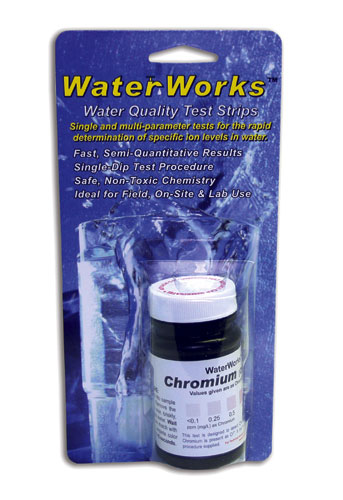The human body benefits from chromium in some respects, but only in small amounts — and those amounts do NOT come from dissolved chromium in drinking water.
Water insoluble chromium(III) compounds and chromium metal are not considered a health hazard, while the toxicity and carcinogenic properties of chromium(VI) are known for a long time. An actual investigation into hexavalent chromium release into drinking water was used as the plot-basis of the motion picture Erin Brockovich.
…
The proposed beneficial effects of chromium(III) and the use as dietary supplements yielded some controversial results, but recent reviews suggest that moderate uptake of chromium(III) through dietary supplements poses no risk.
World Health Organization recommended maximum allowable concentration in drinking water for chromium (VI) is 0.05 milligrams per liter. Hexavalent chromium is also one of the substances whose use is restricted by the European Restriction of Hazardous Substances Directive.
…
The acute toxicity of chromium(VI) is due to its strong oxidational properties. After it reaches the blood stream, it damages the kidneys, the liver and blood cells through oxidation reactions. Hemolysis, renal and liver failure are the results of these damages. ( source )
Despite the fact that some governments around the world try to keep an eye on industry’s use and disposal of chromium products one cannot dismiss the notion that chromium in drinking water could still cause harm in their life — especially if the water comes from a private well.
As chromium compounds were used in dyes and paints and the tanning of leather, these compounds are often found in soil and groundwater at abandoned industrial sites, now needing environmental cleanup and remediation per the treatment of brownfield land. Primer paint containing hexavalent chromium is still widely used for aerospace and automobile refinishing applications. ( source )
Testing for Specific Metals in Drinking Water
For those wishing to test for specific metals in their drinking water, please use the links below to locate information about ion-specific metals in water test kits:





